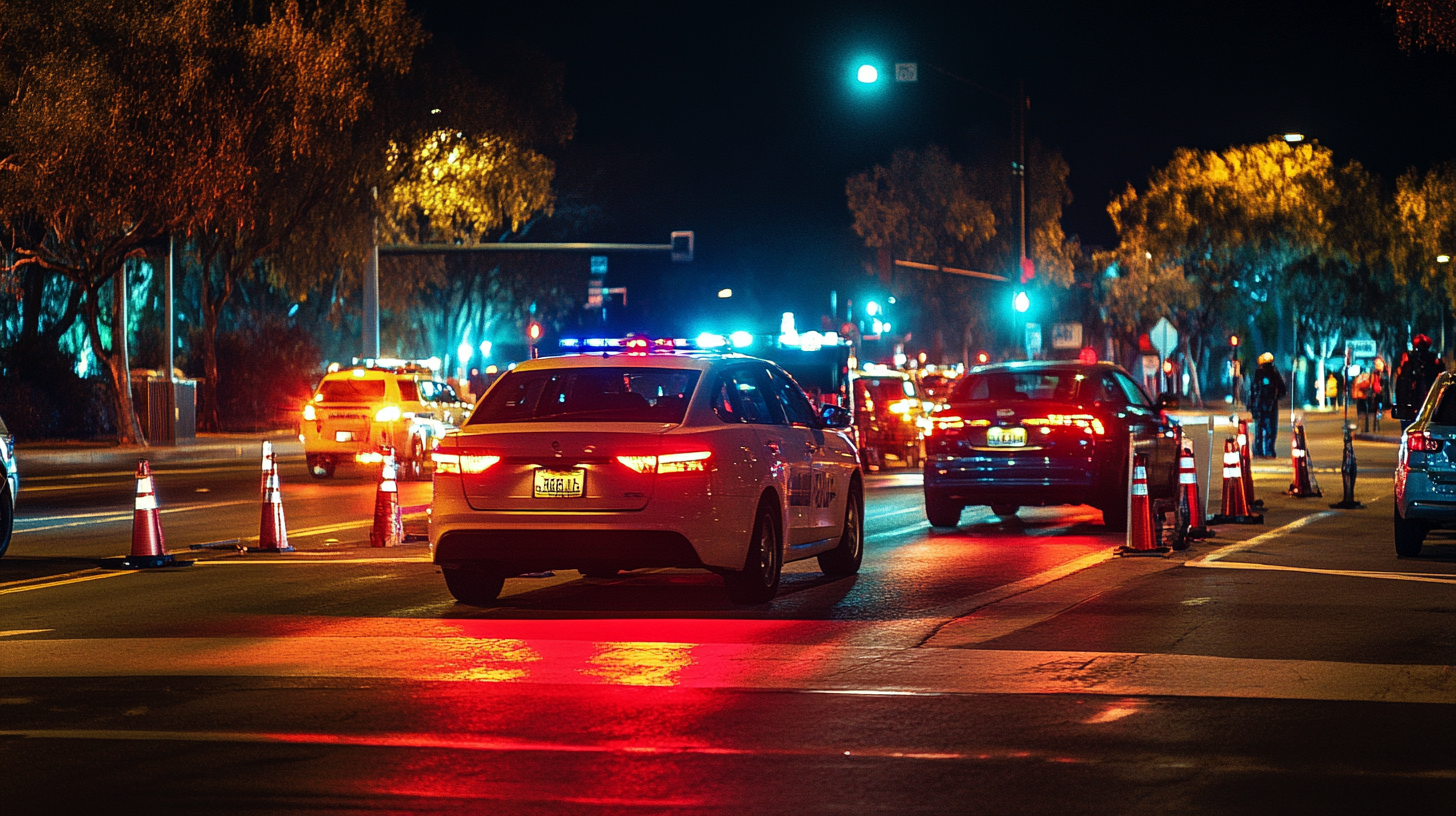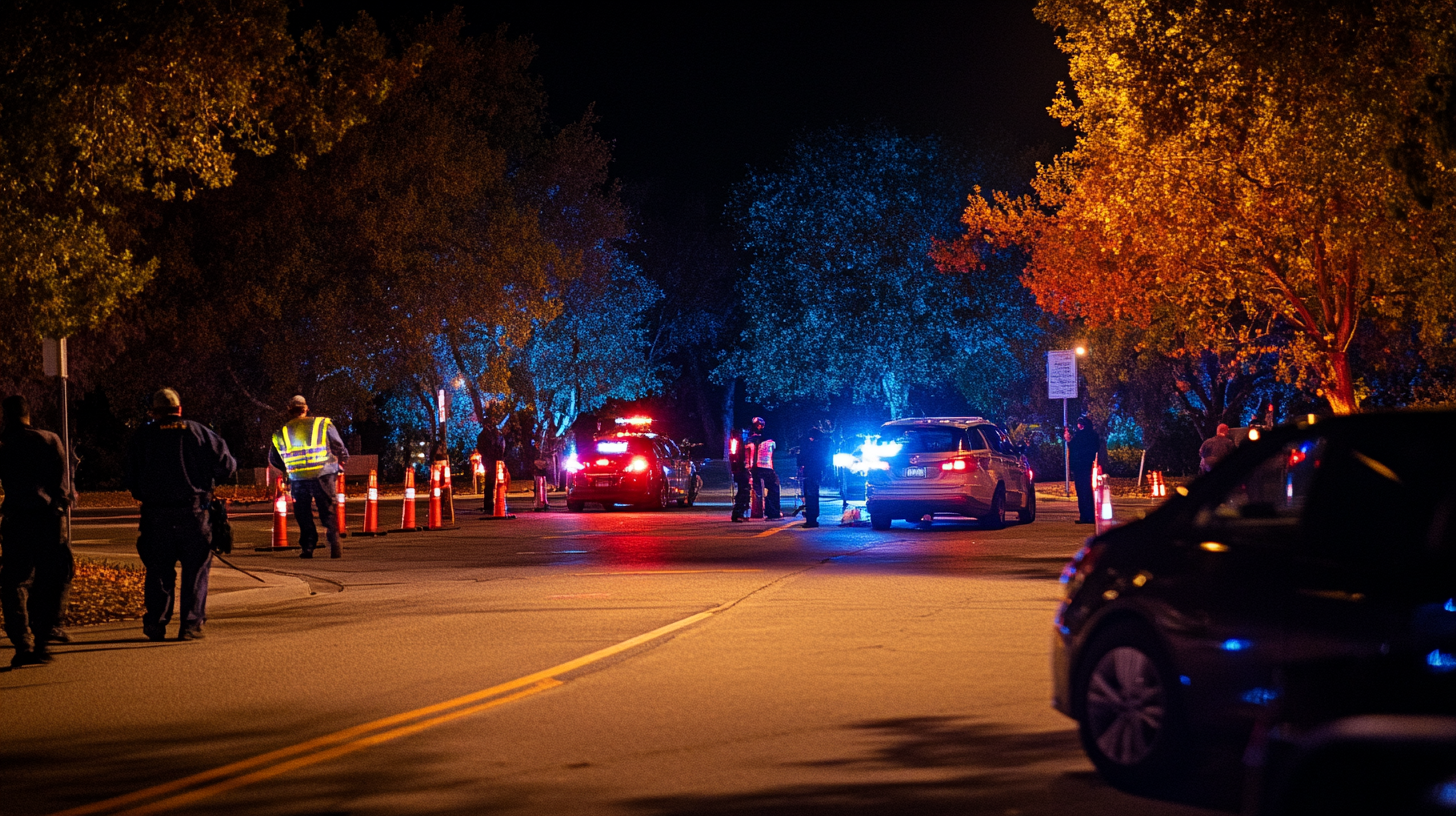Know Your Rights During a DUI Traffic Stop in Nevada County California
If you find yourself in the unfortunate situation of being pulled over for a DUI (Driving Under the Influence) in Nevada County, California, it is crucial to know your rights. Being informed can make a significant difference in how the situation unfolds. This article provides essential information about your rights during a DUI traffic stop, focusing on DUI rights, Miranda rights, and what to expect during the process. Understanding these elements can not only help you remain calm during the process but also ensure that you are treated fairly and in accordance with the law.
The laws surrounding DUI stops are designed to protect both the public and the individual. By being aware of your rights, you can avoid common pitfalls that may arise during a traffic stop. This knowledge empowers you to make informed decisions and ensures that any legal proceedings that follow are based on clear and accurate representations of the event. It’s not just about avoiding penalties; it’s about ensuring that justice is served in a manner that respects your legal rights.
Understanding DUI Traffic Stops
In California, law enforcement officers are vigilant in monitoring and stopping drivers suspected of DUI. It’s important to remain calm and cooperative if you are stopped. Here’s what you need to know about your rights and what to expect. Being pulled over can be a stressful experience, but understanding the process can alleviate some of that stress.
Initial Contact and Officer’s Request
When an officer signals you to pull over, do so safely and promptly. Remain inside your vehicle, keep your hands visible, and wait for the officer to approach. The officer will likely ask for your driver’s license, registration, and proof of insurance. You are required to provide these documents. It’s important to stay polite and refrain from making sudden movements that could be perceived as threatening.
However, you are not required to answer questions about where you have been or whether you have been drinking. You can politely decline to answer by saying something like, “I prefer not to answer any questions.” It’s crucial to maintain a respectful demeanor even when asserting your rights, as this can impact the officer’s perception and subsequent actions. Remember, your words can be used against you, so it is wise to speak carefully.
Field Sobriety Tests and Preliminary Alcohol Screening
The officer may ask you to step out of your vehicle to perform field sobriety tests (FSTs). It’s important to know that in California, you are not legally obligated to take these tests. They are voluntary, and refusing them cannot be used against you in court. The tests are often subjective and can be influenced by factors unrelated to alcohol consumption, such as fatigue or medical conditions.
Similarly, if the officer asks you to take a Preliminary Alcohol Screening (PAS) test using a handheld breathalyzer, you can decline unless you are under 21 or on DUI probation. Refusing a PAS test when not required can help you avoid self-incrimination. The results of these tests can be challenged in court, especially if there are procedural errors or if the equipment is not properly calibrated. Understanding these nuances can help protect your legal rights.

Understanding Miranda Rights and DUI
You may have heard about Miranda rights, which include the right to remain silent and the right to an attorney. However, these rights are not automatically read during a DUI stop. Understanding when these rights apply and how to invoke them can be critical in safeguarding yourself during legal proceedings.
When Are Miranda Rights Applicable?
Miranda rights are applicable once you are taken into custody and before interrogation. If you are arrested for a DUI, the officer must read your Miranda rights before questioning you about the DUI incident. If the officer fails to do so, your statements made during the interrogation may not be admissible in court. This is a crucial protection that ensures any evidence used against you is obtained lawfully and ethically.
It is important to recognize the difference between being detained and being in custody. An officer may question you during a traffic stop without reading your Miranda rights, as you are not technically in custody at that point. However, once you are arrested, these rights become vital, and understanding when they apply can prevent self-incrimination.
Exercising Your Miranda Rights
If you are arrested, clearly state that you wish to exercise your right to remain silent and request an attorney. It’s important to avoid volunteering information or answering questions without legal counsel present. Silence cannot be used against you, and waiting for your attorney ensures that your responses are legally sound.
It can be intimidating to assert your rights, especially in a high-pressure situation like an arrest. However, remaining firm yet respectful in your request for an attorney can significantly impact the legal outcomes of your case. An attorney will help ensure that your rights are upheld and that you receive fair treatment throughout the legal process.
Chemical Testing and Implied Consent
California’s implied consent law means that by driving, you consent to chemical testing (breath, blood, or urine) if lawfully arrested for DUI. Refusing these tests after arrest can result in severe penalties, including license suspension and increased fines. Understanding your obligations under this law can help you make informed choices that affect your legal standing.
Choosing a Test
After an arrest, you will be given a choice of chemical tests. It’s typically advisable to choose a breath test, as blood tests are more invasive and can detect substances longer. The breath test is less intrusive and the results are often available more quickly, which can be beneficial in resolving your case efficiently.
However, if you have medical conditions or concerns about the accuracy of the breath test, discussing these with your attorney can help determine the best course of action. Each test has its own implications, and understanding these can help you make the most informed decision in a challenging situation.
Consequences of Refusal
Refusing a chemical test post-arrest can lead to harsher penalties compared to failing the test. This includes a longer license suspension and potential use against you in court as evidence of guilt. The refusal can be interpreted as an admission of guilt, which can complicate your defense.
It is critical to weigh the potential outcomes before refusing a test, as the legal ramifications can be significant. Consulting with an attorney as soon as possible after an arrest can provide guidance tailored to your specific circumstances, helping you navigate the complexities of DUI charges effectively.

Legal Assistance and Representation
Navigating a DUI charge can be complex, and having legal representation can significantly impact the outcome of your case. An experienced DUI attorney can help you understand your rights, develop a defense strategy, and guide you through the legal process. Their expertise can be invaluable in ensuring that you receive fair treatment and that your defense is robust.
Finding a DUI Attorney
When choosing an attorney, look for someone with experience in handling DUI cases specifically in Nevada County. They will be familiar with local laws and court procedures, which can be advantageous for your case. An attorney with local experience will also have insights into the tendencies of local judges and prosecutors, allowing for a more strategic approach to your defense.
Researching potential attorneys, reading reviews, and scheduling consultations can help you find the right fit for your needs. A good attorney will not only fight for your rights but also provide reassurance and clarity during a stressful time, offering you the best chance for a favorable outcome.
Preparing for Court
Your attorney will help prepare your defense, which may involve challenging the legality of the stop, the accuracy of tests, or the handling of evidence. They will also represent you in court, ensuring your rights are protected. The preparation process is critical, as it involves gathering evidence, interviewing witnesses, and building a strong case on your behalf.
Court proceedings can be daunting, but with the right legal representation, you can approach them with confidence. Your attorney will help you understand each step of the process, from arraignment to trial, ensuring that you are well-prepared and that your case is presented in the best possible light.
Conclusion
Knowing your rights during a DUI traffic stop in Nevada County, California, is essential. Remember, you have the right to remain silent, refuse field sobriety tests, and consult with an attorney. Understanding and exercising these rights can help protect you during a DUI stop and any subsequent legal proceedings. Being proactive and informed can make a significant difference in the outcome of your case.
Stay informed, stay calm, and seek legal assistance if needed. By doing so, you can navigate the complexities of a DUI charge with greater confidence and clarity. Remember, the key to protecting your rights is understanding them and knowing how to assert them effectively, ensuring that you receive fair treatment under the law.
Contact The Win Law Firm for Legal Assistance
If you find yourself facing a DUI charge in Nevada County, California, don’t navigate the complexities alone. Contact The Win Law Firm today for expert legal assistance. Our experienced attorneys are dedicated to protecting your rights and providing you with the guidance you need during this challenging time.
Reach out to us for a consultation and let us help you build a strong defense. Your future is important—take the first step towards safeguarding it by contacting us now!
